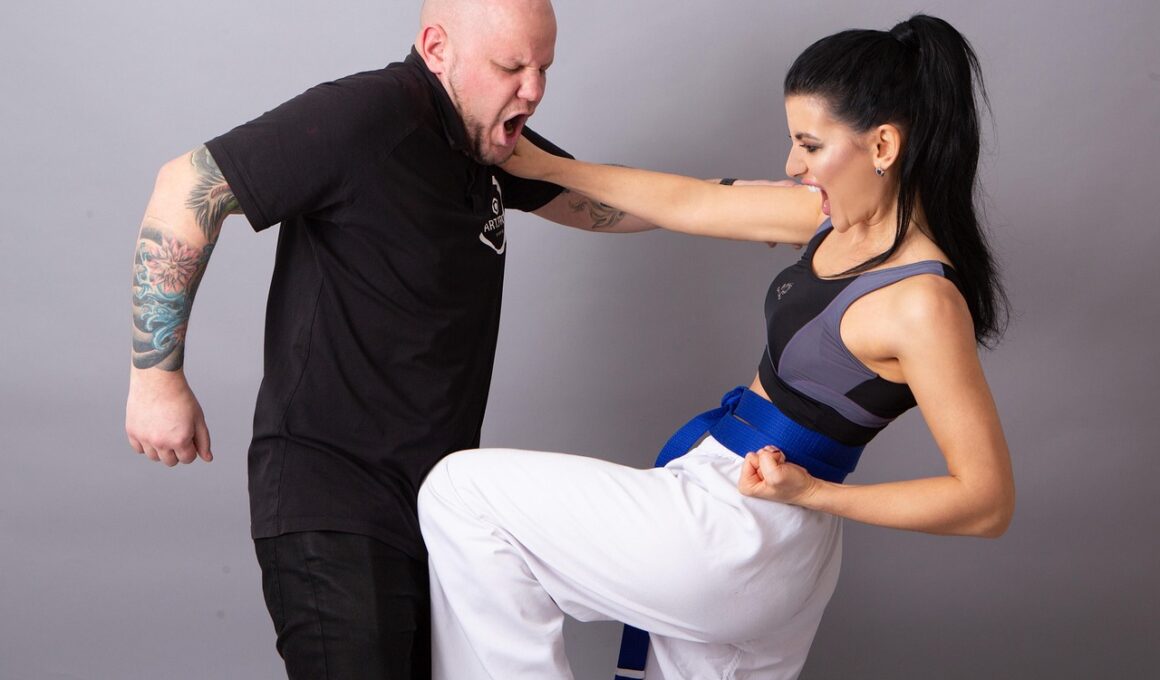Martial Arts and Self-Defense: Why Every Fitness Enthusiast Should Try Training
For individuals who are passionate about fitness, martial arts offers an exciting alternative to traditional workout routines. Not only does martial arts provide a full-body workout, but it also incorporates various techniques that improve strength, flexibility, and endurance. Engaging in martial arts training allows participants to utilize their own body weight against various opponents, promoting functional fitness. Many martial arts schools and dojos offer classes for all skill levels and ages, making it an accessible option for everyone. These schools often include a variety of styles such as karate, judo, and Brazilian jiu-jitsu, enabling fitness enthusiasts to choose a discipline that resonates with them. As practitioners develop their skills, they gain confidence and discipline, which translates to better performance in other fitness activities. The camaraderie found in these classes also fosters a supportive community, encouraging participants to push themselves further. For those looking to diversify their fitness regimen and enhance physical and mental strength, training in martial arts represents a rewarding and fulfilling option.
The Physical Benefits of Martial Arts Training
In addition to the excitement of learning a new skill, martial arts training promotes improved physical health. Regular practice of martial arts significantly boosts cardiovascular fitness, as many sessions involve aerobic exercises that keep the heart rate elevated. This training helps to enhance overall stamina, allowing practitioners to enjoy extended workouts without excessive fatigue. Strength training is another vital aspect of martial arts, as techniques often require explosive power and improved muscle tone. Consequently, martial arts practitioners can expect to see noticeable changes in body composition, including increased muscle definition and reduced body fat. Beyond strength, flexibility plays a crucial role in martial arts, as many techniques demand a wide range of motion. As students master their movements, they often experience enhanced flexibility and balance. Additionally, the discipline of martial arts involves training for quick reflexes, coordination, and body awareness. These physical enhancements not only contribute to martial arts proficiency but also to overall fitness, making it an exceptional choice for those committed to achieving their health goals.
Self-defense is a critical skill that everyone should possess. Martial arts training equips practitioners with the skills necessary to protect themselves in real-life situations. With rising concerns about personal safety, many individuals turn to martial arts classes as a practical solution. These classes teach techniques that help recognize potential threats and respond effectively to various scenarios. Learning to defend oneself fosters confidence, enabling individuals to navigate potentially dangerous situations with assurance. Moreover, martial arts training emphasizes discipline and mental focus, essential attributes for responding to real-time challenges. Often, the knowledge that they can defend themselves provides a psychological buffer, reducing anxiety and boosting self-esteem. Many instructors also integrate situational awareness training into their lessons, helping students understand the importance of assessing their surroundings. Not only does this prepare them for self-defense, but it also promotes a more mindful approach to their daily lives. For many, martial arts training becomes a gateway to not only improving physical capabilities but also finding peace of mind through self-defense.
Mental and Emotional Advantages of Training
Beyond physical fitness and self-defense, martial arts also offers considerable mental and emotional benefits. Many practitioners find that engaging in martial arts acts as a form of stress relief, promoting mental well-being. The focus required during training sessions helps participants to channel their thoughts, leaving behind the distractions and stressors of everyday life. This meditative aspect of martial arts fosters clarity and emotional stability, enhancing mindfulness. In addition, martial arts emphasizes respect and discipline, encouraging practitioners to set goals and work diligently toward achieving them. Overcoming the challenges associated with martial arts training cultivates resilience, as participants learn to face adversity with confidence. Building this mindset can significantly improve how individuals approach challenges outside the dojo, both in their personal and professional lives. The enhanced emotional quotient developed through martial arts leads to better relationships and an increased ability to navigate social situations. Overall, practitioners enjoy a holistic approach to fitness that nurtures not only their bodies but also their minds.
Community is a vital aspect of martial arts education, and joining a dojo provides a unique social network for fitness enthusiasts. Unlike traditional gym environments, martial arts schools foster camaraderie among students, encouraging friendly competition and teamwork. This supportive atmosphere often creates lasting friendships, as practitioners share their goals, aspirations, and experiences. Regular interactions with fellow students and instructors help to establish a sense of belonging. Many schools host events, seminars, and tournaments that draw students together, further strengthening the sense of community. These gatherings encourage persistence and dedication, as students cheer each other on during skills demonstrations or competitions. Participating in such events fosters a deeper understanding of the martial arts philosophies and enriches the overall training experience. Additionally, networking opportunities that arise from joining a dojo can benefit practitioners both within and beyond martial arts. Many schools promote mentorship, where experienced students help newcomers acclimate to the training environment. This nurturing aspect not only enhances the quality of education but also fosters a positive and uplifting community experience.
Choosing the Right Martial Arts School
Finding the right martial arts school or dojo is critical for those looking to start their training journey. Consideration of location, class structure, and specific martial arts styles will help narrow down options. When searching for a dojo, one prominent factor is the instructor’s credentials and teaching style. Prospective students should observe a few classes to gauge compatibility with the teaching approach and environment. Additionally, visiting multiple schools allows for an understanding of the atmosphere and culture of each dojo. Attending introductory sessions can help gauge if the alignment of goals and values matches between instructors and students. Curriculum and class structure should also be assessed, as different schools may have diverse teaching methods. Some schools incorporate traditional approaches emphasizing discipline, while others may focus more on modern techniques that emphasize competition and self-defense. Ultimately, the right choice will resonate personally, keeping students motivated and engaged in their journey. It’s essential to prioritize personal preferences in order to foster a successful training experience.
In summary, martial arts offers a comprehensive approach for fitness enthusiasts seeking not just physical improvements, but also mental and emotional growth. With numerous benefits ranging from increased physical fitness to self-defense knowledge and community bonding, martial arts training presents an attractive option. This diverse range of disciplines allows individuals to explore their passions while committing to a healthy lifestyle. As many engage in martial arts, they develop life skills that contribute significantly to their overall well-being. The community aspect of martial arts schools promotes personal connections and ongoing support, enhancing the motivation to persevere in training. Whether for self-improvement, competition or traditional practice, martial arts cater to all needs and preferences. Becoming involved in martial arts can lead to a fulfilling journey that goes beyond the dojo. Individuals become empowered to manage challenges both on and off the mat. By embracing martial arts training, fitness enthusiasts unlock a pathway to holistic health that enriches every aspect of their lives.


